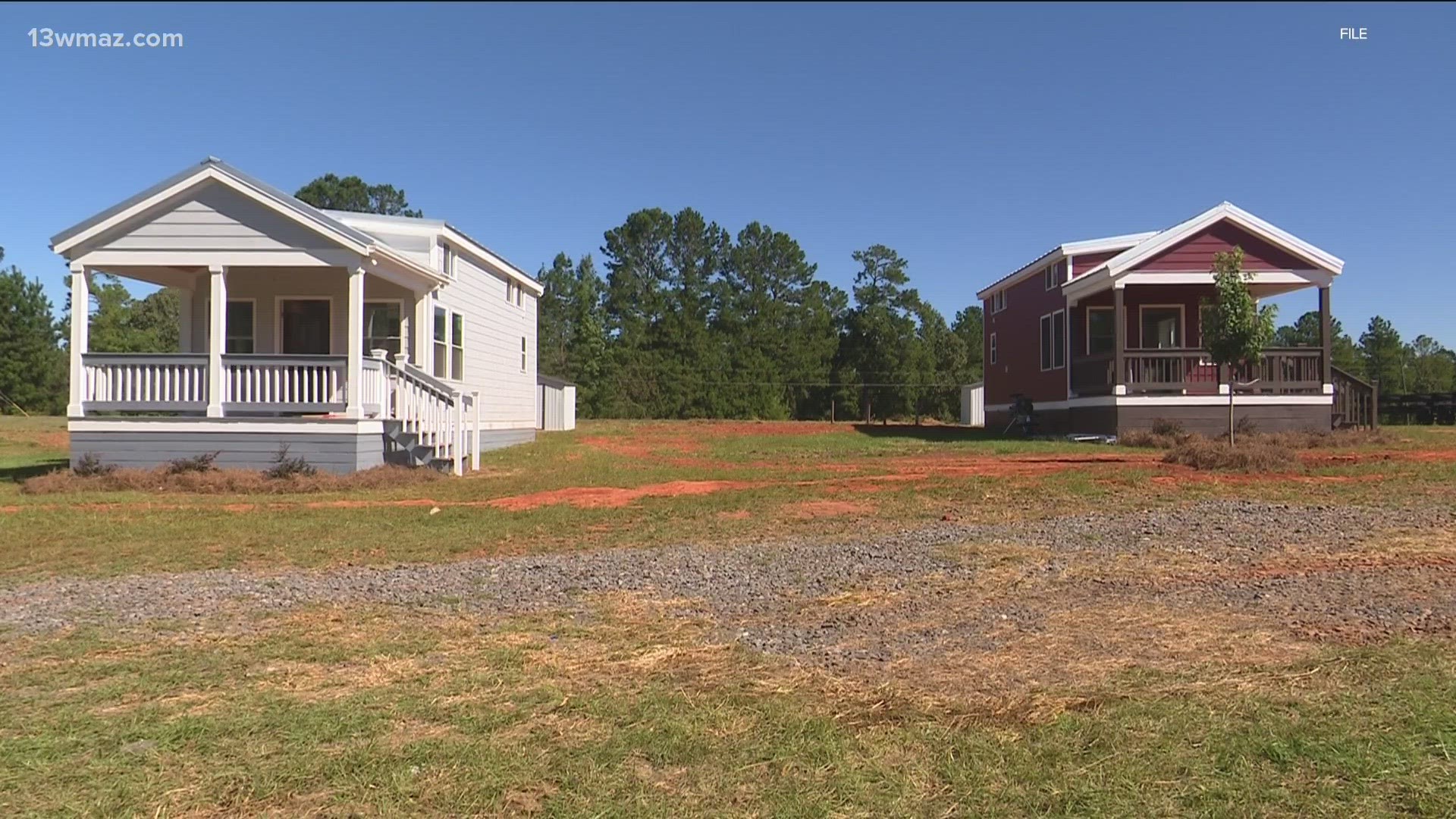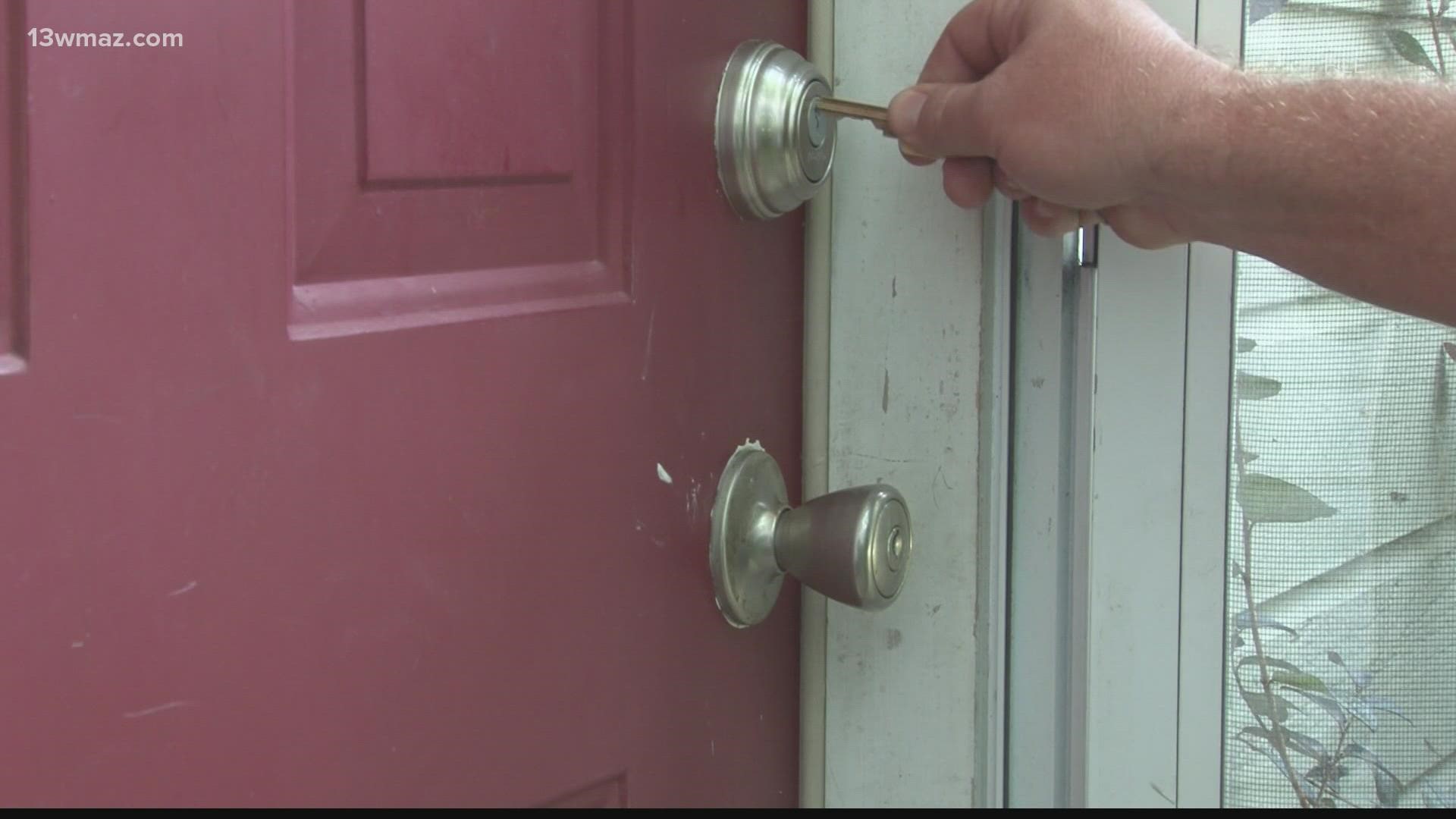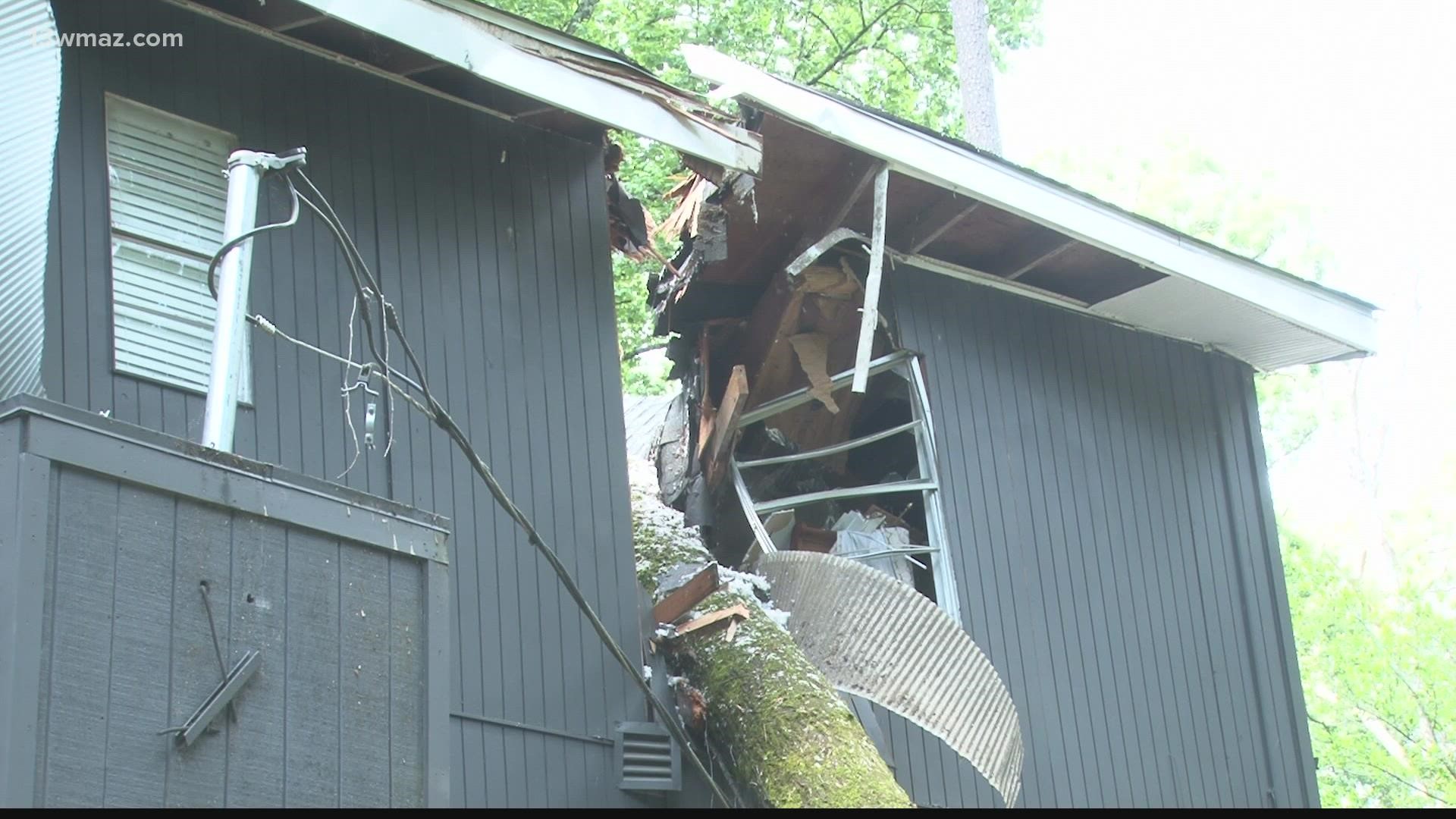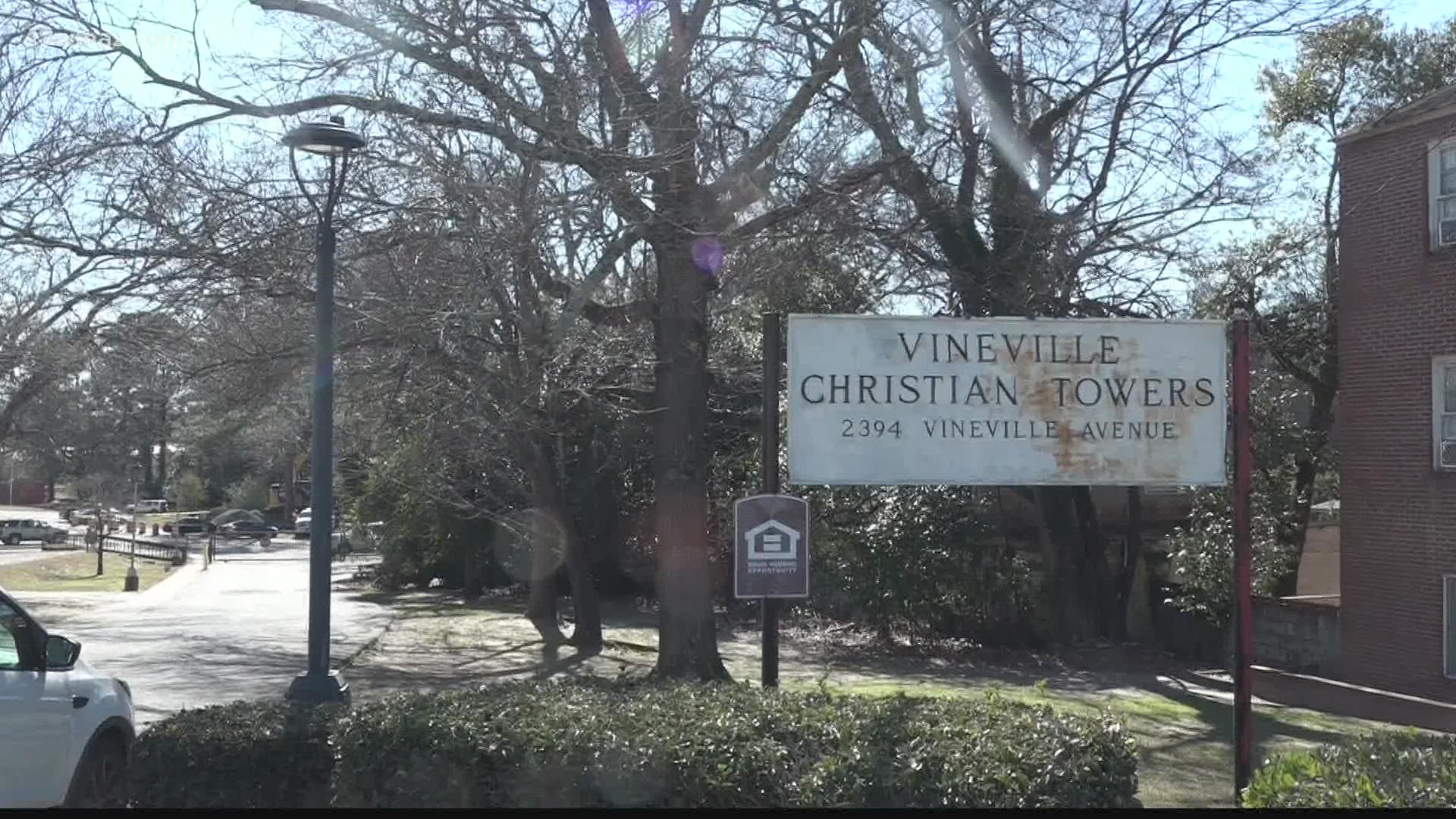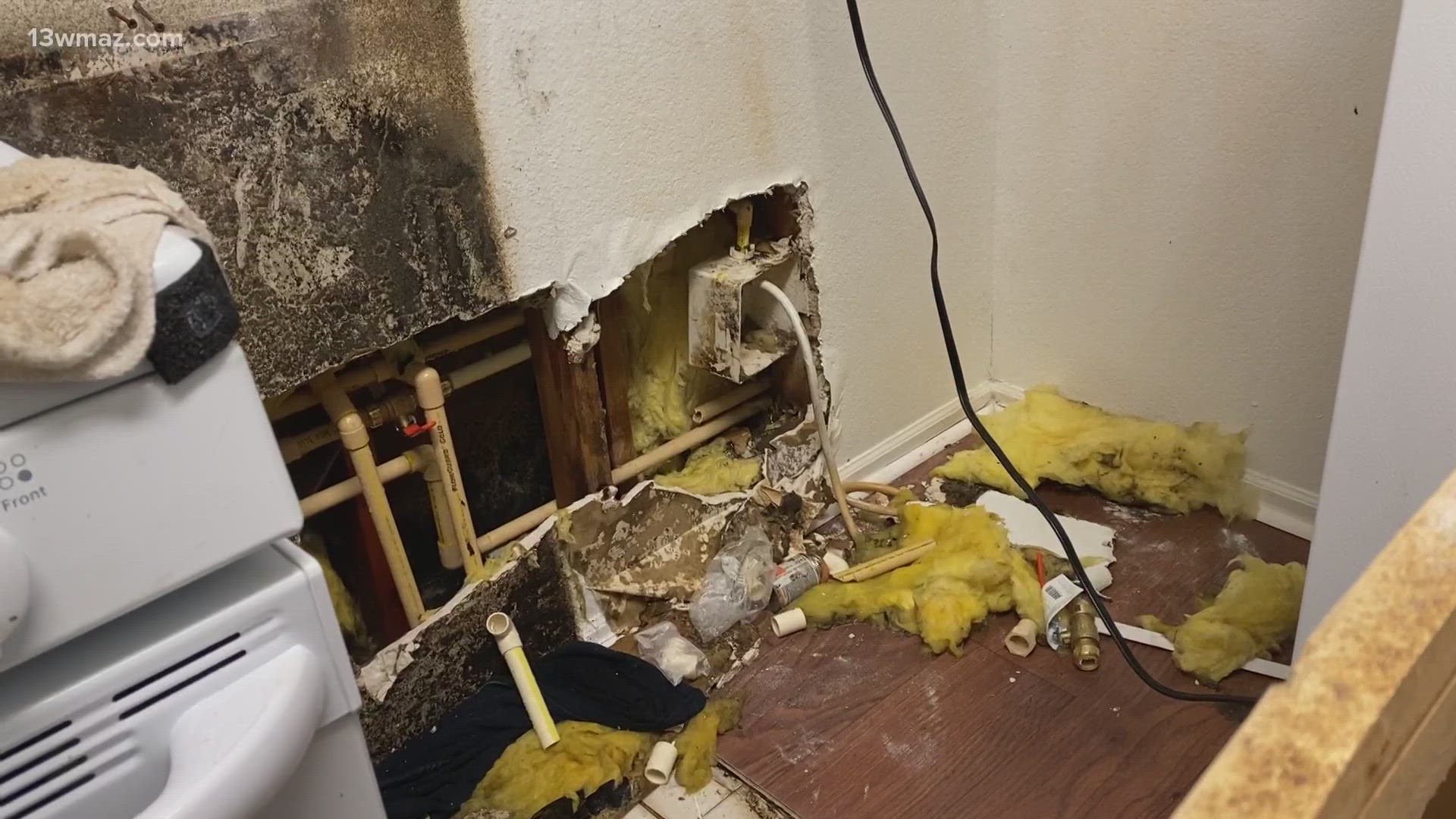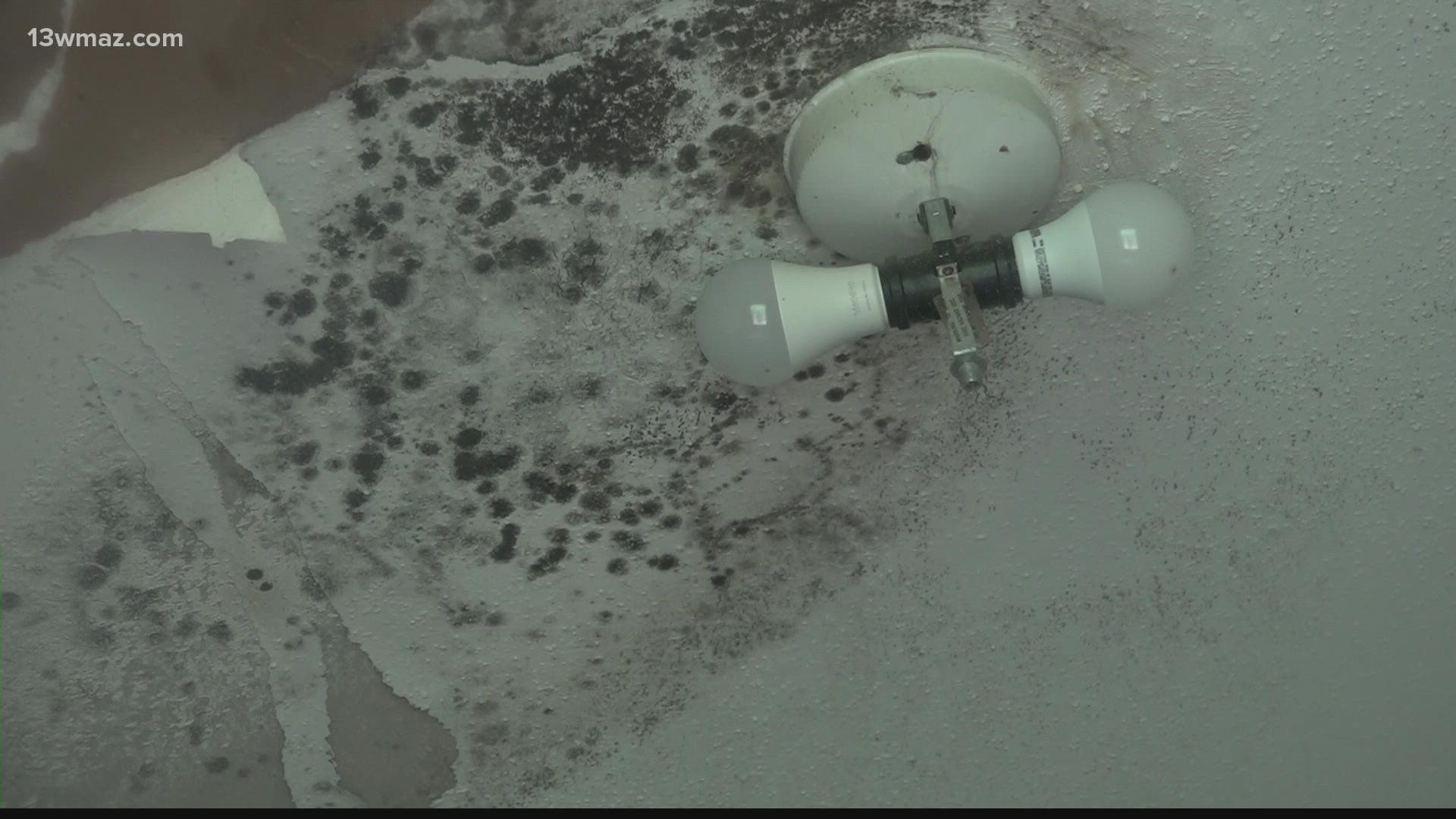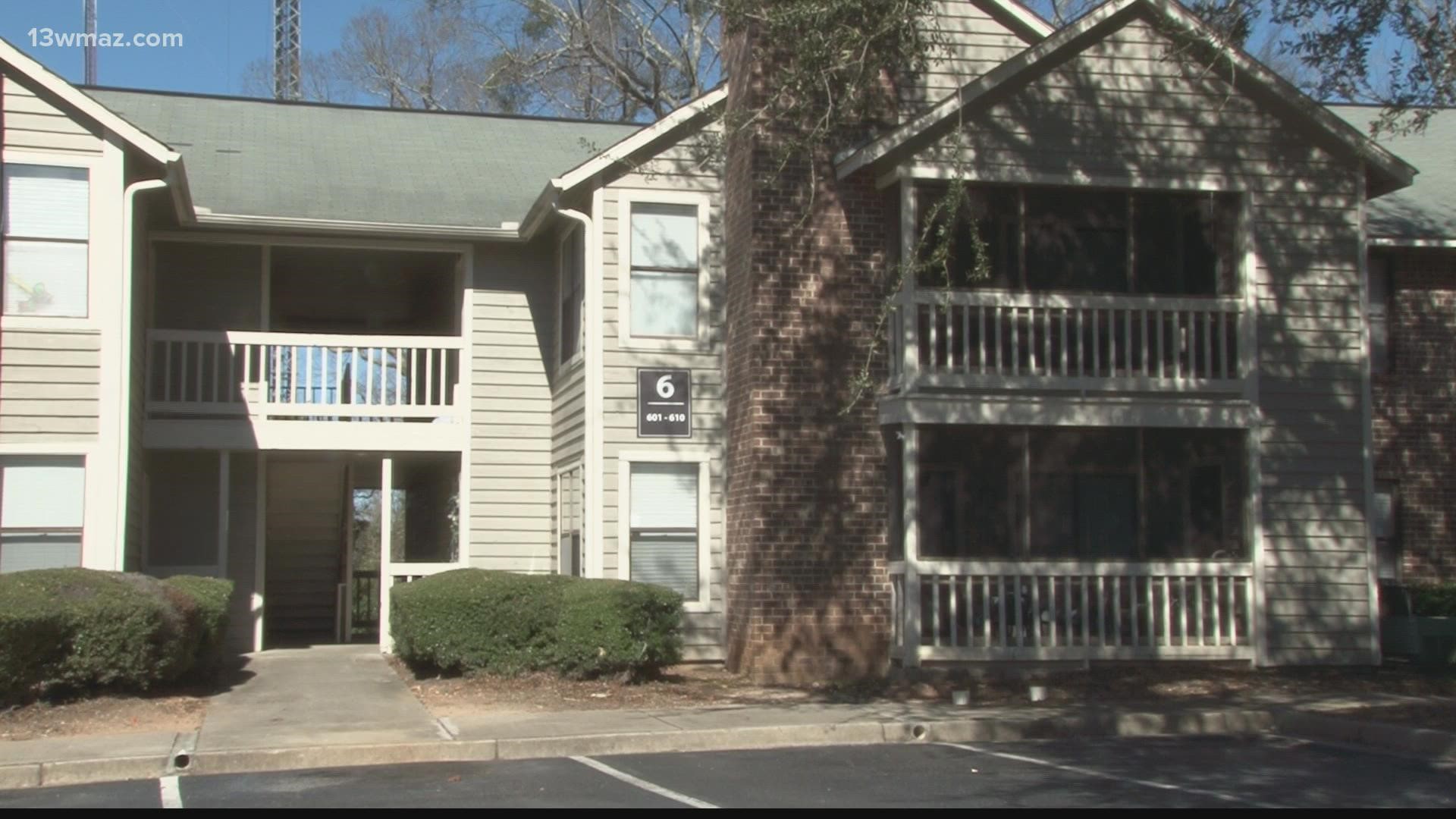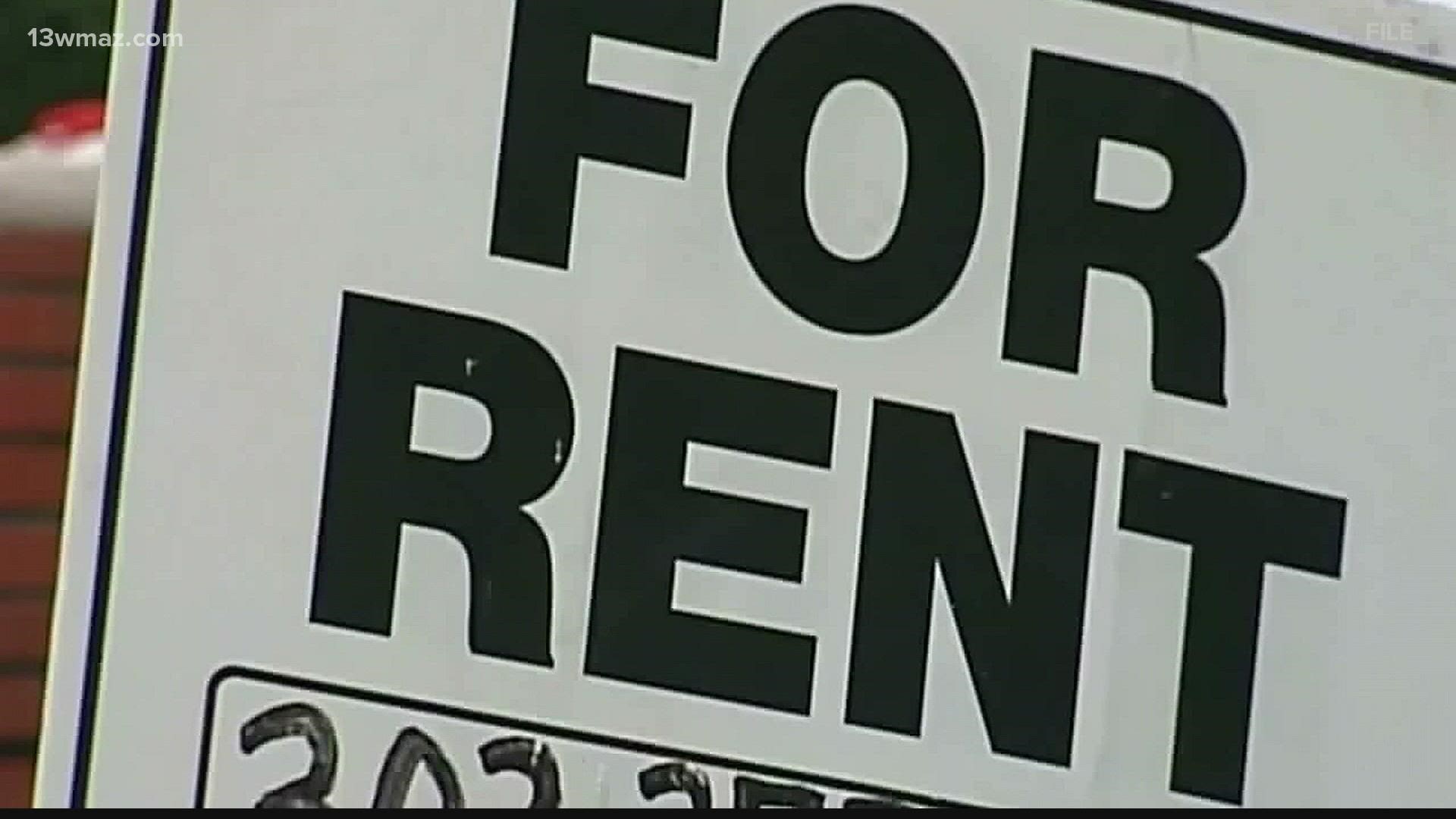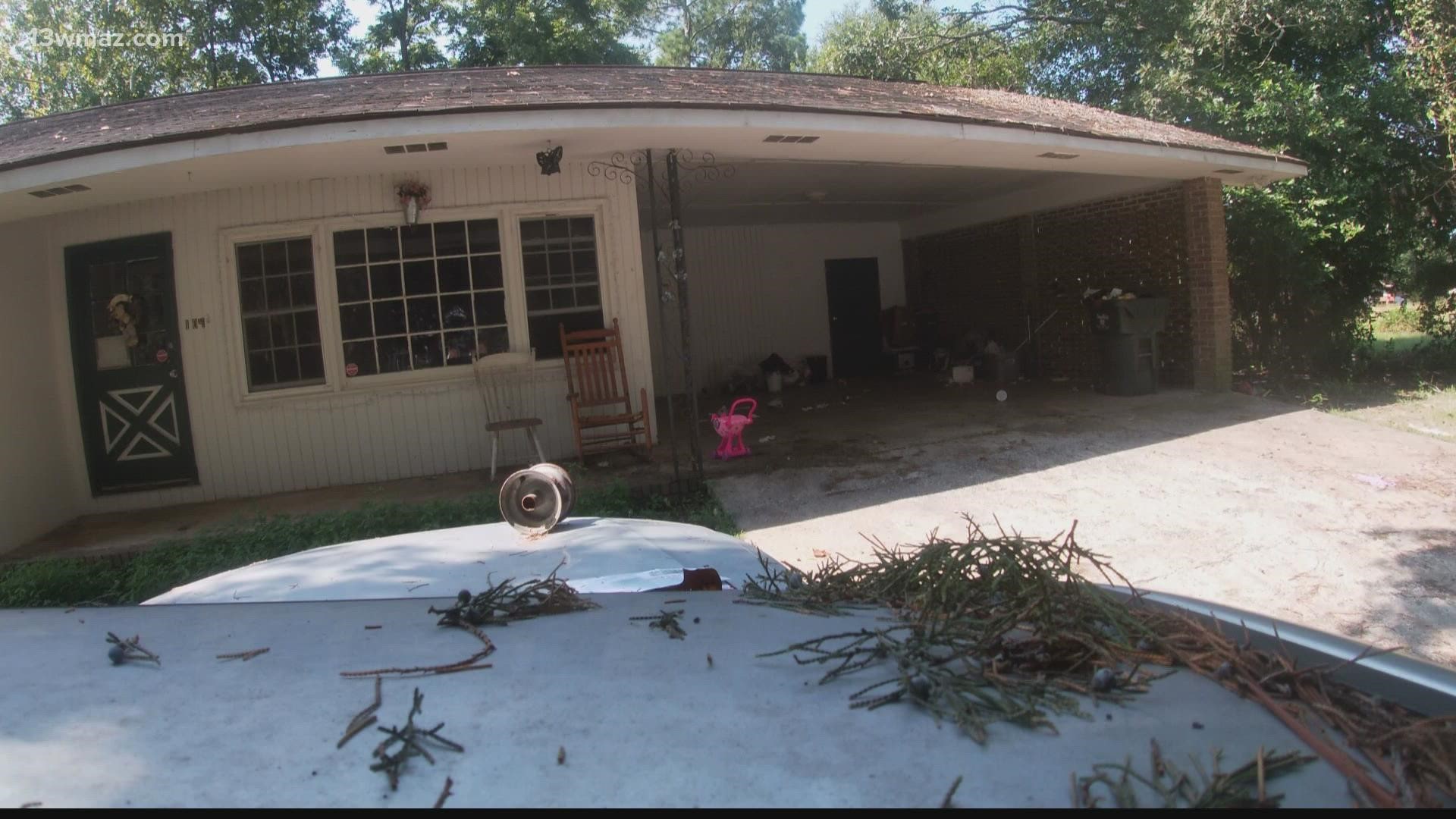MACON, Ga. — For people renting, it can often be hard to know what your rights are. It’s why we at 13WMAZ often hear questions about landlord/tenant dynamics.
The rules in this guide are general, and every landlord and tenant dispute is different. But if you have an issue, professional legal advice is the best way to know if you or your landlord is in the right or wrong.
These general rules also apply only to residential tenants and landlord, not commercial rentals.
Plus, the law can change, and it is possible that some of the information in this guide is not applicable to your situation or there are additional ordinances and facts that are relevant to your individual situation. That’s why professional legal advice is so important.
Some guiding rules to help make the most of your landlord/tenant relationship
Always read the lease. Know what you and your landlord agreed to. A lease is a binding contract that you must follow. Knowing your lease, in large part, tells you your rights as a tenant and your landlord’s obligations.
Always try to work with your landlord prior to taking more extreme measures like calling code enforcement. More extreme avenues can worsen your landlord/tenant relationship, and that can cause problems down the road. You and your landlord have a relationship; try to maintain it.
Getting things in writing is the best way to ensure that your landlord keeps their word. If you have to go up against your landlord in court, written evidence will hold up better than your word alone.
The best way to prevent eviction is to pay your rent on time and follow the terms of your lease. Your lease is a contract, so if you break it, your landlord has grounds to kick you out of your unit.
Here are important things you need to know about your rental agreement, your rights as a tenant and what to do if you face eviction.
Lease:
The lease is the agreement between you and your landlord that allows you to live in a property temporarily. It determines what your landlord pays for (like water, gas, electricity) and what you pay for, like WiFi or cable.
The most important thing is that you must follow the lease even if you did not know exactly what you were signing. Once the lease is signed, those are the terms you must follow.
You should always make sure the price of rent is crystal clear when entering into a lease. Plus, make sure you know if your landlord can increase your rent mid-lease. Otherwise, you might be on the hook for more money than you originally expected.
Prior to signing a lease, you can negotiate with your landlord if you disagree with particular policies or language that you would like to see changed. But because it is the landlord's property, they have the final say about whether or not they will make those changes.
Certain lease provisions, however, are illegal and unenforceable under Georgia law, such as provisions that say landlords:
don’t have to maintain the property.
don’t have to respond to damages caused by their failure to maintain the property.
can require you to pay attorney fees if an attorney is needed to enforce the lease.
are exempted from following local laws.
don't have to follow Georgia security deposit law.
Can evict you without going to court.
Some landlords offer verbal leases, but this can pose problems.
It can be confusing if you or your landlord don’t remember exactly what you agreed to. Getting your lease in writing is the best way to know what you agreed to, and you can bring that to court if necessary.
Security deposit and damages to the unit:
The security deposit is an important tool for landlords. If a tenant leaves their apartment a broken mess, the landlord has some collateral to pay for the repairs.
As long as you notify your landlord of your intention to leave as required by the lease, the landlord must return your security deposit to you within a month as long as you don’t owe money or caused damage to the unit that needs repair. The landlord can also subtract reasonable cleaning costs from the deposit.
But landlords cannot keep your security deposit for “normal wear and tear,” or the slight damage that happens during basic use. That is not the purpose of a security deposit.
A new law in Georgia passed in 2024 also says security deposit cannot be more than two months' worth of rent.
Instead, the landlord can deduct from the security deposit for:
Damage caused by the tenant, family of the tenant, pets, or guests that is done on purpose, by accident, or due to carelessness.
Unpaid rent or late charges.
Unpaid pet fees.
Unpaid utilities that were your responsibility under the lease.
Damage to the landlord caused by early termination.
If the damages to your unit are higher than the security deposit, the landlord can sue you for the rest of the cost.
But the law places limits and restrictions on landlords, too
If something has to be replaced, the landlord cannot charge you for the cost of a new replacement if the item is not new. For instance, if you broke a 5-year-old stove, your landlord can only charge you for the cost of a 5-year-old stove, not the new replacement. The charges must be reasonable.
Any landlord with more than 10 rental units or who employs a management contractor must provide a list of all damages to the unit and an estimated dollar figure for damages to your unit. They must provide it three days after the lease end, or a reasonable time after a landlord realizes you have moved out.
It is best to be physically there with your landlord during the inspection. But if you disagree with the damages, you have the right to inspect the unit within five days of your move out.
A move-out inspection report is typically where you and your landlord determine what damage was done while you were living there. But once you sign it, you are on the hook for those damages unless you spell out in writing which damages you disagree with.
Move In:
Any landlord who owns more than 10 rental units or contracts with a property management company, must have a formal inspection during move-in.
This allows you and the landlord to get on the same page on damages that came with the unit. If you don’t fill out that form, when moving out, you might have to pay for damages that came with the property.
If the landlord owns more than 10 rental units or contracts with a property management company, they also must provide a complete list of damages before you pay your security deposit. The landlord also must allow you to inspect the unit to verify the list is accurate.
Before moving in, you should always visit the property.
While some bigger properties have model units as an example of what a unit looks like, you should insist on seeing the unit you’ll actually live in. That way, you'll know exactly what your unit looks like and what condition it is in.
Repairs:
Your landlord must keep your unit in good repair so that it is safe and fit for human habitation.
Under Georgia law, the landlord must:
maintain the building structure.
keep the electric, heating and plumbing systems in working order.
“exercise ordinary care” to keep the unit safe for tenants.
But there are limits:
If there were problems that were obvious during a move-in inspection, the landlord is not required to make those fixes unless they make the unit unsafe or unsanitary.
Landlords are also not required to provide carpet cleaning.
Unless your landlord is the one providing air conditioning, appliances, or fences, it is on the tenant to maintain them on their own.
Tenants need to immediately give written notice to the landlord of any problems, and it needs to follow the requirements included in the lease.
Promised repairs:
If your landlord promises to make certain repairs before you move in, you should get that promise in writing.
Without that, the landlord could deny that they ever made that promise.
The landlord is not responsible for fixing damage that was obvious during the move-in inspection. So unless you can prove in court that this promise was made, the landlord may be able avoid for making those repairs. So get it in writing.
What to do if your landlord isn’t making repairs?
If your landlord is not meeting their legal obligations to maintain the unit and make repairs within a reasonable time, you have some options.
It is important, however, to try to resolve this situation with your landlord. Give your landlord some flexibility and understanding, but sometimes landlords fail to meet their legal obligations. Here are some strategies you can use:
Repair and Deduct:
You can also use the repair-and-deduct strategy, but you need to be very careful because there are specific rules you must follow.
Under repair-and-deduct ,you can hire a qualified and licensed professional to make repairs your landlord is not making. The costs must be reasonable,, and repair-and-deduct should only be used if the landlord is not making repairs in a reasonable time.
Here’s what you need to do first:
Tell your landlord you plan to use repair-and-deduct before you get someone to do the repairs.
You must keep your receipts and ask the contractor to provide a statement that shows what work was done and what was fixed.
You can repair and deduct only for problems your landlord is legally required to make, not for any other improvements. If those repairs are not your landlord's legal responsibility, they are not responsible for the cost.
It is also good practice to get quotes from multiple contractors and keep those estimates so you can show the cost was reasonable.
You should use repair-and-deduct only if all other attempts to get your landlord to make the fixes have failed. If your landlord argues that the repair was unnecessary or unreasonably expensive, they might not have to pay, and you might be stuck with that bill.
You also need to tell your landlord that you are planning on using repair-and-deduct before you get the repairs made and – to avoid having to foot the bill – you should try to get the landlord to agree to the costs in writing first.
The only repairs you can subtract from your rent are for problems that the landlord is legally required to make. The repairs must be made at a reasonable cost, but then you can subtract the cost of the repairs from your future rent.
This applies only to your own unit, so you cannot use repair-and-deduct for common spaces.
Code enforcement:
You can call code enforcement to inspect the unit, but it is important to do this only if you’ve tried all other options.
If the building is out of code, the government might condemn the unit, which makes it unfit for residential use. This would allow you to move out, but you need to have proof that the property was condemned and write to your landlord declaring that your lease is in default.
The phone number for Bibb County Code Enforcement is (478) 241-2554.
Your landlord cannot evict you for calling code enforcement, but this can worsen your relationship with your landlord and can cause problems.
Unfit for habitation:
A landlord’s failure to make serious repairs can make the unit unfit to live in. This might mean your landlord is violating your lease because they are not meeting their legal obligation to maintain the unit. However, this is very rare.
Before you can move out due to the lack of repairs, you must show that:
The landlord has failed to keep the unit repaired to the point that it has become unfit to live in.
Ordinary repairs could not fix the problem.`
The damage has to be very severe to move out and suspend your lease. If you believe that those two criteria are met, you should call code enforcement to provide legal support for those claims.
Otherwise, if you abandon your unit you can be on the hook for all the money you own for the rest of your lease. Your landlord can also find someone else to occupy the unit while still charging you. So again, it is not a good idea to move out unless you can prove the damage legally makes the unit unfit for human habitation.
Other scenarios:
You might also have grounds to sue if your landlord's failure to fix problems results in someone getting injured. If they had notice of the problems, had the chance to fix them and just didn’t make those repairs, you can sue for the damage their negligence caused.
You might also be able to negotiate with your landlord to get compensation or future rental credit for the loss and inconvenience caused by the damage.
Mold:
By itself, mold is not a problem your landlord must address. But landlords can be required to clean it if the mold is causing health problems.
If the mold was caused by faulty construction – like a broken pipe – or because of your landlord’s negligence, your landlord might be required to clean it, according to the law firm Smith, Welch, Webb & White in Atlanta.
Go through your lease and see if the maintenance policies include language about addressing mold. If you notice mold, immediately contact your landlord.
Smith, Welch, Webb & White note that Georgia law does not say specifically what landlords must do about mold.
But a landlord is required by law to keep a unit in livable condition. Particularly if the mold is causing health problems, your landlord has a higher legal obligation to address it.
If you communicate with your landlord about mold, they might address it on their own. But if they refuse and the mold makes the unit unfit to live in, you may need to contact an attorney or code enforcement, but that should be the last resort.
What can you do in your unit?
The lease doesn’t just give you a place to stay; it gives you a place to enjoy.
Unless the lease says otherwise, you can have visitors over as long as they don’t spend the night too many times in a row, get mail or deliveries at the unit without your landlord’s permission or disrupt neighbors. But you must follow the rules in your lease about how many people are allowed in your unit.
Some people get in trouble for unauthorized pets.
If you don't follow lease rules on pets, the landlord can evict you and terminate your lease. Even if your landlord was originally lax on enforcing pet rules, they're still within their right to enforce them at any point.
Your landlord can have “house rules” that you must follow like restrictions on overnight visitors, quiet hours and guest policies. You should ask if there are any house rules before signing the lease and read them carefully.
If your lease mentions house rules, you most follow them even if you did not know them. But before signing your lease, you can negotiate with your landlord to try to make changes.
If you fail to follow the house rules, your landlord can evict you and terminate your lease.
Ending your lease:
If you can’t stand your rental situation, many leases have early termination provisions. But it is important that you terminate the lease as detailed in your lease. Otherwise, you can be viewed as abandoning your unit and charged rent as your lease requires.
Ending your lease early can cost you fees. That's because breaking that contract can damage to your landlord, who expected your rental income.
When your lease ends, you are required to notify your landlord that you plan to leave. Otherwise, your lease can automatically extend, under the original terms.. The landlord must give 60 days' notice before terminating or changing the lease, and you must give 30 days' notice before ending the lease.
What to do if you are getting kicked out?
Landlords in Georgia cannot kick you out of your apartment without going through the eviction process. Because your lease gives you the legal right to reside at a property, your landlord needs to show that you broke that contract.
When the landlord first submits an eviction notice, you can still remain in your unit until the court decides. This is important: Landlords cannot cut off your utilities while you are facing eviction.
A new law was signed back in April that only allows landlords to file an eviction notice when a tenant's rent is three days overdue.
If you are being evicted for not paying rent, you have seven days to pay the rent to stop eviction. If you pay your balance in full – which might include late fees – your landlord can not evict you.
But this is only possible once every 12 months. If you fall behind on your rent again in the next year, the landlord can still move forward with eviction even if you pay the full balance. Your landlord might be willing to drop the eviction, but they are not legally required to do that.
Here’s what the process typically looks like:
Read your lease to see what the lease has to say about the notice and the termination process.
The landlord is going to need to “demand for possession,” which basically means they are asking you to leave. The landlord can do that in person or in writing, but it is difficult to prove when a notice was given unless it's on paper.
The landlord is going to file a dispossession affidavit if you refuse to leave. But after this is filed, the landlord cannot accept rent because it can allow a tenant to stop the eviction. The landlord could get the courts to order the tenant to pay if the process is taking longer than two weeks.
The tenant must be served the dispossession affidavit. The sheriff will most likely provide the dispossession affidavit, or a summons telling a tenant that they are being evicted.
As a tenant, you must respond to your landlord either verbally or writing within seven days of receiving the notice. If you do not respond, the court can evict you and sheriff's deputies would remove you from the property.
Hearing: if your answer includes a valid legal defense, a hearing will be held. You need to raise a valid legal defense – not an explanation of your circumstance – to half the eviction. Otherwise, you could be evicted without a hearing.
Writ of possession: After the hearing, the judge will decide if the eviction should go through. But if the court rules against you, the landlord will seek a writ of possession requiring you to leave your unit. Even after you are evicted, you are on the hook for rent that is due.
Once a court sides with the landlord, the tenant can still be removed even if they make back payments.
A landlord or tenant can appeal a judgment within seven days. This would then take the matter to a jury trial. With the complicated nature of an appeal, it is best to retain an attorney to guide you
Georgia law allows landlords to seize a tenant's property as another way to pay off rent “as it is due” if the tenant is trying to remove property.
Landlords are responsible for the cost of eviction. A tenant's personal property can be placed on some portion of the landlord's land – like on the lawn – but the landlord is not responsible for anything that happens to the property.
But if your landlord
1. takes your property and move it elsewhere or
2. Keep your property in the unit;
the tenant has grounds to sue the landlord for taking their property.
What an answer to an eviction looks like:
The response to a summons is your opportunity to explain why your landlord does not have the right to evict you.
You must make sure everything in your answer is correct, because filing false statements is a misdemeanor.
In an answer, you can include any counterclaims against a landlord. Your answer is your one chance to include any counterclaims you’d like the court to know about, because otherwise, you would not be able to use that information in court.
The only information you can draw upon in an eviction hearing is the information that you include in your answer.
If your landlord has failed to make repairs and your property was damaged, you can use that in your answer. Anything that your landlord was legally required to do but didn't should be included.
If you are going to be damaged financially due to a wrongful eviction, you can make note of that. That can include responding to the answer, missing work or hiring an attorney. But you can get compensation for that only if it was truly a wrongful eviction.
If the process cannot be concluded within two weeks, the courts can order the tenant to pay the court their past due and future rent (if your rent is due in the middle of the eviction process). If that payment is not made, the tenant can be evicted.
For additional resources about what are legally valid counterclaims and other eviction defenses. check page 24 of the Georgia Landlord-tenant Handbook here:
Discrimination
Landlords can not deny housing because someone is a member of a protected class. That means they can't discriminate based on race, color, religion, sex, national origin, familial status, or disability.
But discrimination can take many different forms.
Refusing to rent
Providing different rental agreements
Discouraging a person to rent (here’s what that looks like)
Directing a person to particular facilities and away from others
Not advertising to people with protected characteristics
Lying about a unit availability
Showing preference based on protected status
To prove discrimination, you must prove these decisions must be made based on a person's protected status.
Disability accommodations:
Landlords also must make reasonable accommodations to allow a person with disabilities to access housing. But there are limits.
If the changes “would fundamentally alter the program or create an undue financial and administrative burden,” landlords are not required to make those changes.
Landlords must also allow people with disabilities to make “reasonable changes” to a unit that allows them to make “full use” of their housing. These changes are at the tenant's expense, and tenants may be required to undo the changes “if reasonable” when they're moving out.
What to do if you’ve been discriminated against:
The federal Department of Housing and Urban Development oversees discrimination complaints
There are a couple of ways to get help if you think you’ve been discriminated against by a landlord.
File a complaint with Fair Housing and Equal Opportunity within one year of the discriminatory action. You can submit a complaint online https://www.hud.gov/program_offices/fair_housing_equal_opp/online-complaint or submit the form by email or print it and mail it to the Macon regional branch of the Federal Housing and Equal Opportunity Office.
There are two Georgia-based organizations apart of the Department of Housing Urban Development’s Fair Housing Initiatives Program that help investigate, and determine if you’ve been discriminated against.
Hinesville: (912)-877-4243
Atlanta: (404)-524-0000
Do you need additional help?
The best solution for any landlord/tenant dispute is to consult with an attorney. Professional legal advice can make a tremendous difference.
Georgia Legal Aid: There are additional tips and guides that are available on Georgia Legal Aid’s website here. This is a great place to go if you cannot afford an attorney.
The Department of Housing and Urban Development: There are additional resources and guides here.
Georgia Landlord Tenant Handbook: Our guide is an abridged version of this state document. It includes additional information, instructions and examples that may be helpful. You can find that here.

